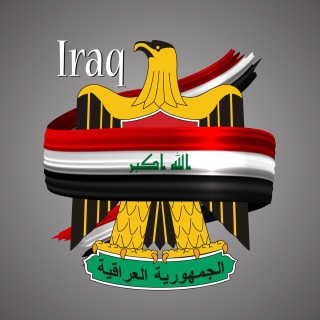Elections in Iraq: why they matter?
The success of the legislative elections are crucial for the future of Iraq. Ahmad Abdul-Rahman explains.
Iraq's legislative elections were held on 10 October, in which 3,243 candidates, including 951 female candidates, competed in 83 electoral districts, for 329 seats. Women had a 25% representation and minorities had nine seats. The Iraqi constitution allocated eight parliamentary seats for minorities out of 328, then increased the number to nine. Five seats are divided as follows: one for the Shabak sect, one for the Yezidis, another for the Sabeans, and one seat for the Kurds in Wasit Governorate.
Some 14 million Iraqis participated in voting in these early elections. Voting was held in all governorates for members of the security services, inmates and the displaced, with the voting rate averaging 69%, according to the Independent High Electoral Commission.
The elections were supervised by 715 international observers at all polling stations. In an election that Prime Minister Mustafa Al-Kazemi considered a successful first step towards a broad participation of Iraqis in the general vote. Al-Kazemi also stressed that the government had taken extensive security measures to prevent attempts to interfere with the electoral process.
Al-Kazemi called on all citizens to participate widely in the elections, praising the position of all national and international bodies that called on voters to participate. He also called on all political parties to obey the law, stressing the need to stand firm against any attempt to influence the votes.
The parliament was dissolved to prepare for the elections. Bashir al-Haddad, the second deputy speaker of the Iraqi parliament, announced that the dissolution decision entered into force when the parliament voted to dissolve itself in preparation for the elections.
For his part, the Assistant Secretary-General of the League of Arab States, Ambassador Saeed Abu Ali, who headed the Arab League mission to follow up on the Iraqi elections, said that Secretary-General Ahmed Aboul Gheit's interest in the democratic process in Iraq prompted him to send an observation mission to follow up on the elections. This mission included a number of specialists and experts from nine Arab countries to cover the main governorates, including Basra, Diyala, Najaf, Mosul, and the capital, Baghdad.
There is a state of international and regional anticipation for the outcome of the Iraqi elections, which come after the success of the current government in achieving a great deal of stability and security after 18 years of chaos, and the approaching US withdrawal from the country. The government based in Baghdad is also ensuring that the country returns to its Arab and regional surroundings. All these developments make the elections pivotal with regard to the future of Iraq, which entered into steps, agreements and cooperation with Arab countries, especially Egypt and Jordan, which provided support to Iraq and will help in its return to its surroundings and position in the Arab world.
The Baghdad Conference for Cooperation and Partnership was one of the foundations of dialogue among regional powers in the Middle East. This important conference witnessed the participation of Arab and non-Arab powers, in addition to the League of Arab States, so that it could reach a cooperative formula that transcends differences in order to achieve security and stability in Iraq. The conference also aimed at ensuring the security and stability of the region.
Despite Iraq's success in defeating the terrorist organisation ISIS, the organisation's return to the forefront is still one of its fears. Those fears were reflected in the statements of officials, including Iraqi Parliament Speaker Muhammad al-Halbousi. He stressed the continued presence of ISIS dormant cells inside Iraqi cities and governorates and stressed that the security forces need international support to dry up the sources of terrorist financing. The removal of ISIS is a common thread among many international and regional powers that support the return and stability of Iraq. It is one of the steps needed to achieve stability in the Arab region.
That is why many international organisations, especially the League of Arab States, were keen to participate in Iraq's elections, which are pivotal to the country's future. They will help to confirm Iraq's Arab identity, and to restore the unity of its society. The success of the elections can be judged by whether they end nearly two decades of instability in the country.


Comments